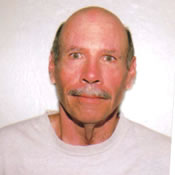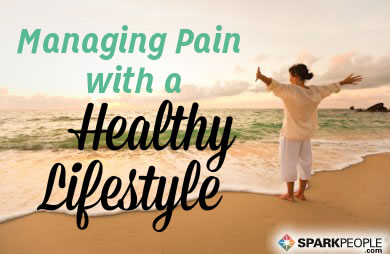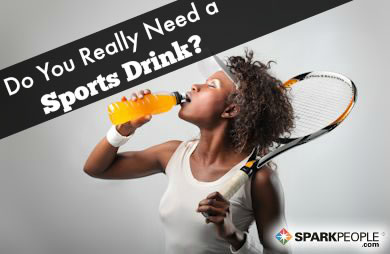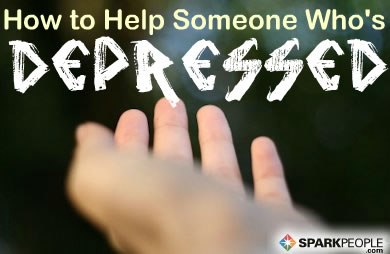|
If you’re trying to eat healthy and/or lose weight, you need to know quite a bit about fat—both the kind you eat, and the kind you’d like to lose. But it seems that many of us don’t really know as much as we need to. In this study, for example, 77% of the people questioned knew that trans fat is one kind of dietary fat that can be unhealthy. But only 21% could name 3 foods that provide trans fat, and only 33% could name one. Can you name 3 or more kinds of foods that have significant amounts of trans fat in them (without looking at the article first)? There are also many myths and misconceptions floating around about how to get your body to lose the stored fat you don’t want. If you’re not sure what’s fact and what’s myth, you could waste a lot of time doing things that don’t produce very good results—or even worse, your diet and exercise efforts could produce results that are the opposite of what you really want. Here are some basic statements about fat that you’ll often run into. Some are true and some aren’t. Decide whether you think each statement is true or false, and then check your answers below. 1. Your body “loses” fat by taking body fat out of storage in your fat cells and converting it into energy when you don’t eat enough to match your energy needs. 2. Compared to protein and carbohydrate, fat is the easiest nutrient for your body to store as body fat. 3. The larger your daily calorie deficit is, the more body fat you will burn as fuel. 4. To get the best fat loss results, you should exercise at lower intensity levels (the “fat-burning zone” you see on many cardio exercise machines). 5. It’s better to exercise on an empty stomach, because you’ll burn more fat as fuel for your exercise. 6. A very low-fat diet is best for your health and for weight loss. 7. For weight loss, it’s better to concentrate on strength training rather than cardio exercise, because muscle burns more calories all the time, and the more you have, the more calories you’ll burn even when just sitting around. Done? Read on to check your answers… 1.Your body “loses” fat by taking body fat out of storage in your fat cells and converting it into energy when you don’t eat enough to match your energy needs. TRUE. Whenever your diet provides more than what your body needs at that time, the excess energy is stored as fat for later use, and taken back out of storage when needed as fuel. 2. Compared to protein and carbohydrate, fat is the easiest nutrient for your body to store as body fat. TRUE. The process of digesting and using the food you eat uses up calories. It takes the most energy to break the protein you eat down and turn it into body fat, and the least to turn dietary fat into body fat. Overall, about 10% of the calories you eat are used to digest and metabolize food. 3. The larger your daily calorie deficit is, the more body fat you will burn as fuel. FALSE. There are natural limits on how much body fat your body can convert into fuel in any given time period. Many cells don’t use fat as fuel, and how much fat your muscle cells burn depends on the intensity and duration of your activity. The bottom line here is that, if your calorie deficit is larger than the amount of energy your body can get from body fat, it will get the additional energy it needs by breaking down the protein in your muscle and organ tissues to turn it into energy. And by slowing down or stopping certain normal functions, like repairing and maintaining skin, hair, bone, and muscles, to reduce energy needs. When you hear people talking about “starvation mode,” this is what they mean. When your calorie deficit gets too large, your metabolism slows down, less fat is burned, and more muscle and organ tissue is lost. For most people, a calorie deficit between 250 calories (if you don't have much weight to lose) and 1000 calories (if your BMI is over 30) per day is best for healthy fat loss. 4. To get the best fat loss results, you should exercise at lower intensity levels (the “fat-burning zone” you see on many cardio exercise machines). FALSE.Unless you do several hours or more of exercise per day, where your body gets the energy it uses during the exercise itself doesn’t matter for fat loss. What does matter is how much total energy you expend, and that will be higher when you exercise at higher intensity levels. For more details about how this works, see this article. 5. It’s better to exercise on an empty stomach, because you’ll burn more fat as fuel for your exercise. FALSE. This is based on a misconception about where your body gets the energy it uses during exercise. Most of it does NOT come from your last meal—it comes from the storage tanks in your muscles themselves. Your muscles have the capability to store and use both glucose (called glycogen in this form) and fat, and once these tanks are filled up, they can only be emptied by using those muscles. That fuel can’t be taken out of your muscle cells and used for other purposes (so it doesn’t get depleted while you’re sleeping), and going for a few hours without eating won’t have any significant effect either. The main thing that can deplete your muscle fuel supplies is a combination of using those muscles actively and not eating enough to let your body refill the tanks between exercise sessions. Also, whether (and how much) your body uses fat or glucose to fuel your muscles during exercise depends mostly on the intensity and duration of your exercise, not on what you’ve eaten recently. For more on this, see the link in question 4 above. 6. A very low-fat diet is best for your health and for weight loss. FALSE. An adequate amount of fat is essential for good health. Some important vitamins (A,D,E,K) are fat soluble, which means they can only be absorbed and utilized if your diet is adequate in fat. And some fats can actually help promote heart health. The monounsaturated fats found in many nuts and nut butters, seeds, avocados, and some vegetable oils like olive oil can help raise levels of HDL cholesterol (the “good” cholesterol), which helps to protect your arteries against atherosclerosis. The Omega –3 fats found in some fish oils and in flax, for example, are also very important for good health. Many health professionals now recommend that people use supplements to obtain Omega-3 fats if they don’t get enough in their regular diet. Obviously, fat is the nutrient that is highest in calories, so you’ll need to be careful about not eating too much if you’re trying to lose weight. But the best way to do that is to make sure the fat you do eat is mostly the healthy kind—not to reduce your total fat intake too much. 7. For weight loss, it’s better to concentrate on strength training rather than cardio exercise, because muscle burns more calories all the time, and the more you have, the more calories you’ll burn even when just sitting around. FALSE. Muscle does burn more calories than fat, even at rest. But the actual number is pretty small. A pound of muscle will use up about 6 calories per day, just sitting there, while a pound of fat will burn only 2. So, adding 25 pounds of muscle would only increase your resting metabolism by about 150 calories per day. 30 minutes of brisk walking will burn more than that. Not to mention the fact that adding this much muscle is almost impossible if you’re dieting to lose weight—it would take a calorie surplus to do that. On the other hand, vigorous exercise can make your muscles burn up to 8-20 times as much energy per minute as they do while at rest. So, the bottom line here is that using your muscles as much as you can is what burns the extra calories, not just having them or watching them recover from your weight lifting session. So, don’t skimp on the cardio exercise—do both strength training and cardio for best weight loss results. How'd you do on the quiz? Any surprises, or changes you need to make in your diet or exercise routines? Photo grabbed from Flickr |
More From SparkPeople
|

.png)



.png)









